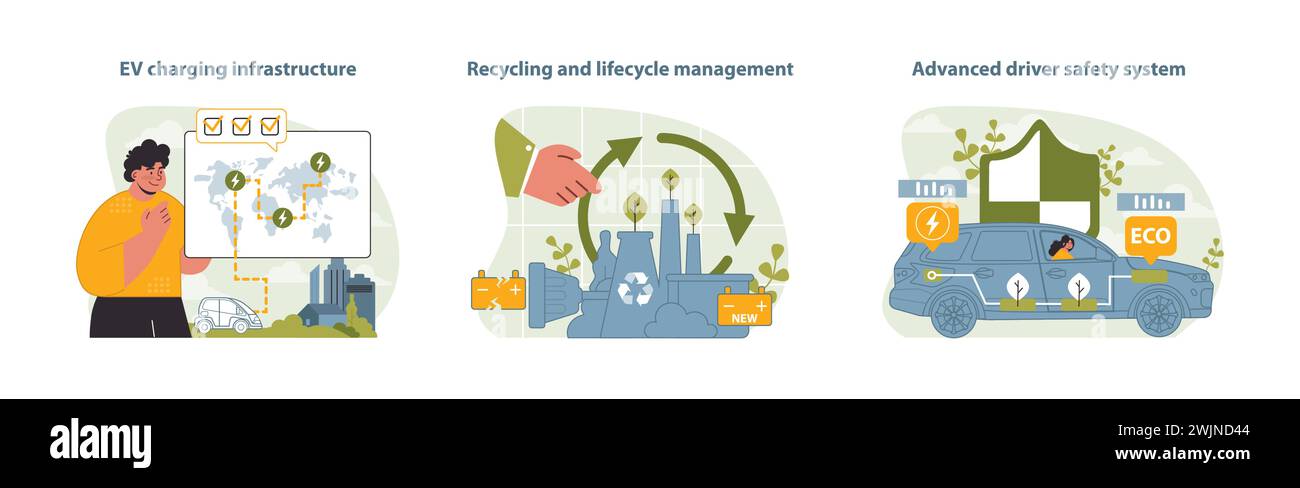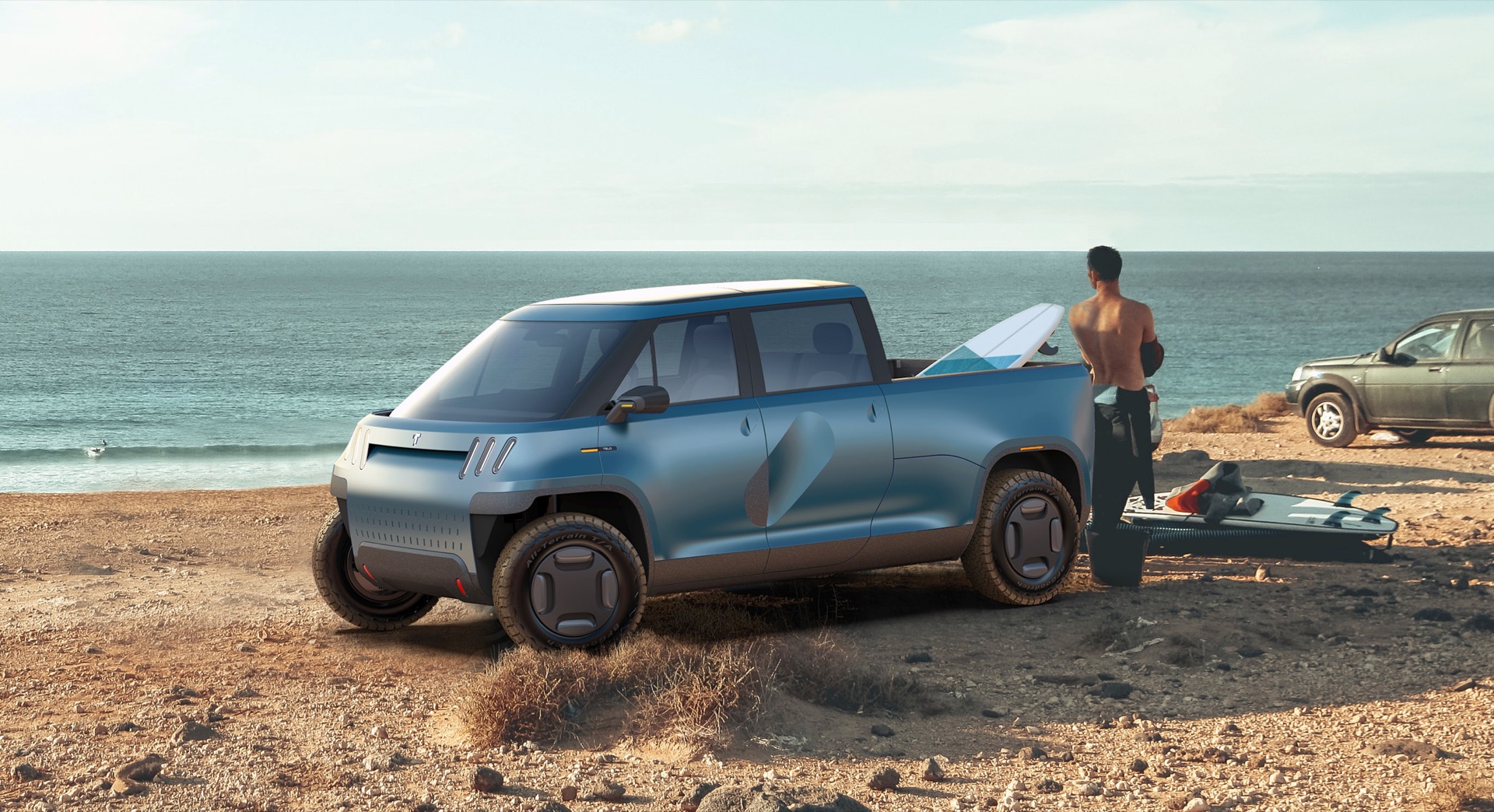Unlocking the Potential of Electric Vehicles through Innovation
The electric vehicle (EV) industry is experiencing unprecedented growth, driven by increasing demand for sustainable and environmentally friendly transportation solutions. As governments and consumers alike seek to reduce their carbon footprint, startups are poised to play a crucial role in shaping the future of the EV industry. By leveraging innovative technologies and business models, startups can capitalize on the vast opportunities presented by the EV market, which is expected to reach 14 million units sold by 2025.
However, to succeed in this rapidly evolving landscape, startups must stay ahead of the curve in terms of technology and sustainability. This requires a deep understanding of the complex interplay between technological advancements, regulatory frameworks, and shifting consumer preferences. By embracing a culture of innovation and experimentation, startups can develop cutting-edge solutions that meet the needs of a rapidly changing market.
One key area of focus for startups is the development of advanced battery technologies, which are critical to improving the range and efficiency of EVs. By investing in research and development, startups can drive innovation in areas such as solid-state batteries, lithium-air batteries, and other emerging technologies. Additionally, startups can explore new business models, such as battery-as-a-service, to reduce costs and increase accessibility for consumers.
Furthermore, startups can leverage emerging technologies like autonomous driving, vehicle-to-grid (V2G) technology, and smart charging systems to create innovative products and services that enhance the overall EV experience. By integrating these technologies into their offerings, startups can differentiate themselves from established players and establish a strong market presence.
Ultimately, the success of startups in the EV industry will depend on their ability to innovate and adapt in a rapidly changing environment. By embracing a culture of innovation and experimentation, startups can unlock the full potential of electric vehicles and play a leading role in shaping the future of sustainable transportation.
How to Develop a Winning EV Business Model
A successful electric vehicle (EV) business model requires a deep understanding of the market, competition, and revenue streams. Startups must conduct thorough market analysis to identify trends, opportunities, and challenges in the EV industry. This includes analyzing consumer behavior, preferences, and pain points, as well as assessing the competitive landscape and identifying areas for differentiation.
A well-crafted business model should also include a unique value proposition that sets the startup apart from established players. This can be achieved by offering innovative products or services, such as advanced battery technologies, autonomous driving capabilities, or smart charging systems. Additionally, startups can explore new revenue streams, such as subscription-based services, data analytics, or energy storage solutions.
To create a winning EV business model, startups should focus on the following key elements:
Market analysis: Conduct thorough market research to understand consumer behavior, preferences, and pain points.
Competitive landscape: Analyze the competitive landscape to identify areas for differentiation and opportunities for growth.
Revenue streams: Explore new revenue streams, such as subscription-based services, data analytics, or energy storage solutions.
Unique value proposition: Develop a unique value proposition that sets the startup apart from established players.
Partnerships and collaborations: Foster partnerships and collaborations with suppliers, manufacturers, and government agencies to drive innovation and growth.
By focusing on these key elements, startups can develop a winning EV business model that drives innovation, growth, and success in the industry.
Leveraging Emerging Technologies to Drive EV Innovation
The electric vehicle (EV) industry is on the cusp of a revolution, driven by emerging technologies that are transforming the way we think about transportation. Startups are at the forefront of this revolution, leveraging innovations like battery advancements, autonomous driving, and vehicle-to-grid (V2G) technology to create new products and services that are disrupting the industry.
Battery advancements, for example, are enabling EVs to travel farther and faster than ever before. Solid-state batteries, lithium-air batteries, and other emerging technologies are being developed to improve the range and efficiency of EVs. Startups are investing heavily in research and development to bring these technologies to market, and the results are promising.
Autonomous driving is another area where startups are making significant strides. By leveraging advances in artificial intelligence, machine learning, and sensor technologies, startups are developing autonomous vehicles that can navigate complex roads and traffic patterns with ease. This technology has the potential to transform the EV industry, enabling new business models and revenue streams.
Vehicle-to-grid (V2G) technology is also being developed by startups, enabling EVs to act as energy storage devices and supply electricity back to the grid. This technology has the potential to stabilize the grid, reduce energy costs, and create new revenue streams for EV owners.
To leverage these emerging technologies, startups must be willing to take risks and invest in research and development. They must also be able to navigate the complex regulatory landscape and build partnerships with suppliers, manufacturers, and government agencies. By doing so, startups can create innovative products and services that drive growth and innovation in the EV industry.
Some examples of startups that are leveraging emerging technologies to drive EV innovation include:
Faraday Future, which is developing a range of EVs with advanced battery technologies and autonomous driving capabilities.
NIO, which is developing a range of EVs with advanced battery technologies and V2G capabilities.
These startups are just a few examples of the many companies that are driving innovation in the EV industry. By leveraging emerging technologies and investing in research and development, startups can create new products and services that transform the industry and drive growth.
Designing Sustainable and Efficient EV Charging Infrastructure
As the demand for electric vehicles (EVs) continues to grow, the need for sustainable and efficient EV charging infrastructure becomes increasingly important. Startups in the EV industry must prioritize the development of charging systems that are not only convenient and accessible but also environmentally friendly and cost-effective.
One of the key challenges in designing sustainable EV charging infrastructure is the integration of renewable energy sources. Startups can leverage solar, wind, and other forms of renewable energy to power their charging systems, reducing their reliance on fossil fuels and minimizing their carbon footprint. Additionally, the use of energy storage systems can help to stabilize the grid and ensure a reliable supply of electricity.
Smart charging systems are another crucial component of sustainable EV charging infrastructure. These systems use advanced algorithms and real-time data to optimize charging times and reduce strain on the grid. By charging EVs during off-peak hours or when renewable energy is available, startups can reduce their energy costs and minimize their impact on the environment.
Urban planning also plays a critical role in the development of sustainable EV charging infrastructure. Startups must work with city planners and government agencies to design and implement charging systems that are integrated into the existing infrastructure. This can include the installation of charging stations in public parking garages, shopping centers, and other high-traffic areas.
Some examples of startups that are designing sustainable and efficient EV charging infrastructure include:
ChargePoint, which offers a range of charging solutions for EVs, including Level 2 and DC Fast Charging systems.
EVgo, which provides a network of public charging stations that are powered by 100% renewable energy.
These startups are just a few examples of the many companies that are working to design sustainable and efficient EV charging infrastructure. By prioritizing the development of renewable energy sources, smart charging systems, and urban planning, startups can create a more sustainable and efficient EV ecosystem.
Collaboration and Partnerships: Key to EV Startup Success
In the electric vehicle (EV) industry, collaboration and partnerships are crucial for startup success. By working with suppliers, manufacturers, and government agencies, startups can access new technologies, expertise, and resources that can help them drive innovation and growth.
One of the key benefits of collaboration is the ability to share knowledge and expertise. By partnering with established players, startups can gain access to new technologies and innovations that can help them stay ahead of the curve. For example, startups can partner with battery suppliers to develop new battery technologies that can improve the range and efficiency of EVs.
Another benefit of collaboration is the ability to reduce costs and improve efficiency. By partnering with manufacturers, startups can access economies of scale and reduce their production costs. For example, startups can partner with contract manufacturers to produce EV components and reduce their production costs.
Government agencies also play a critical role in supporting EV startups. By providing incentives, funding, and regulatory support, government agencies can help startups overcome the challenges of developing and commercializing new EV technologies. For example, government agencies can provide funding for research and development, tax credits for EV production, and regulatory support for EV adoption.
Some examples of successful partnerships and joint ventures in the EV industry include:
Tesla’s partnership with Panasonic to develop new battery technologies.
General Motors’ partnership with LG Chem to develop new EV batteries.
These partnerships demonstrate the importance of collaboration and partnerships in driving innovation and growth in the EV industry. By working together, startups and established players can develop new technologies, reduce costs, and improve efficiency, ultimately driving the adoption of EVs and reducing our reliance on fossil fuels.
Overcoming Regulatory and Policy Hurdles in the EV Industry
The electric vehicle (EV) industry is subject to a complex regulatory and policy landscape that can pose significant challenges for startups. From safety standards to emissions regulations, EV startups must navigate a multitude of rules and regulations to bring their products to market.
One of the key regulatory challenges facing EV startups is the issue of safety standards. EVs must meet strict safety standards to ensure the protection of drivers and passengers, and startups must invest significant resources in testing and certification to meet these standards.
Emissions regulations are another critical issue for EV startups. As governments around the world implement stricter emissions standards, EV startups must ensure that their products meet these standards to avoid penalties and fines.
Incentives are also a critical issue for EV startups. Governments offer a range of incentives to encourage the adoption of EVs, including tax credits, rebates, and exemptions from certain regulations. EV startups must navigate these incentives to maximize their benefits and stay competitive.
Despite these challenges, there are steps that EV startups can take to overcome regulatory and policy hurdles. One key strategy is to engage with regulators and policymakers to advocate for supportive policies and regulations. By building relationships with key stakeholders, EV startups can help shape the regulatory landscape and create a more favorable business environment.
Another key strategy is to invest in research and development to stay ahead of regulatory requirements. By developing new technologies and innovations, EV startups can meet or exceed regulatory standards and stay competitive in the market.
Finally, EV startups can benefit from partnering with established players in the industry. By working with experienced companies, EV startups can gain access to expertise and resources that can help them navigate regulatory and policy challenges.
Some examples of EV startups that have successfully navigated regulatory and policy challenges include:
Tesla, which has worked closely with regulators to advocate for supportive policies and regulations.
Rivian, which has invested heavily in research and development to meet or exceed regulatory standards.
These examples demonstrate the importance of regulatory and policy awareness for EV startups. By engaging with regulators, investing in research and development, and partnering with established players, EV startups can overcome regulatory and policy hurdles and achieve success in the market.
Real-World Examples of EV Startup Innovation
The electric vehicle (EV) industry is home to a number of innovative startups that are disrupting the market with new technologies and business models. In this section, we will explore some real-world examples of EV startup innovation, including Tesla, Rivian, and Lucid Motors.
Tesla is one of the most well-known EV startups, and its success is a testament to the power of innovation and disruption. Founded in 2003, Tesla has grown to become one of the leading EV manufacturers in the world, with a range of models that include the Model S, Model X, and Model 3. Tesla’s innovative approach to EV design and manufacturing has helped to establish the company as a leader in the industry.
Rivian is another EV startup that is making waves in the industry. Founded in 2009, Rivian has developed a range of innovative EV products, including the R1T pickup truck and the R1S SUV. Rivian’s focus on adventure and outdoor activities has helped to establish the company as a leader in the EV market.
Lucid Motors is a more recent entrant to the EV market, but the company is already making a significant impact. Founded in 2007, Lucid Motors has developed a range of innovative EV products, including the Lucid Air sedan. Lucid Motors’ focus on luxury and performance has helped to establish the company as a leader in the EV market.
These examples demonstrate the power of innovation and disruption in the EV industry. By developing new technologies and business models, EV startups can establish themselves as leaders in the market and drive growth and adoption of EVs.
So what can we learn from these examples? Here are a few key takeaways:
Focus on innovation and disruption: EV startups that focus on innovation and disruption are more likely to succeed in the market.
Develop a strong brand identity: EV startups that develop a strong brand identity are more likely to establish themselves as leaders in the market.
Focus on customer needs: EV startups that focus on customer needs are more likely to develop products and services that meet the needs of the market.
These are just a few examples of the many EV startups that are innovating and disrupting the market. By studying these examples and learning from their successes and failures, EV startups can develop the strategies and tactics they need to succeed in the market.
Future-Proofing Your EV Startup for Long-Term Success
The electric vehicle (EV) industry is rapidly evolving, and startups must be prepared to adapt to changing market conditions, technological advancements, and shifting consumer preferences. To future-proof their businesses, EV startups must prioritize innovation, sustainability, and adaptability.
One key strategy for future-proofing an EV startup is to invest in research and development. By staying at the forefront of technological advancements, EV startups can develop new products and services that meet the evolving needs of the market. This may include investing in emerging technologies such as autonomous driving, vehicle-to-grid (V2G) technology, and advanced battery systems.
Another important strategy is to build a strong company culture that prioritizes innovation and sustainability. By fostering a culture of creativity and experimentation, EV startups can encourage employees to think outside the box and develop new solutions to complex problems. This may include providing training and development opportunities, encouraging collaboration and teamwork, and recognizing and rewarding innovative thinking.
EV startups must also prioritize adaptability and flexibility in the face of changing market conditions. This may include developing agile business models that can quickly respond to shifts in consumer demand, investing in data analytics and market research to stay ahead of the curve, and building strategic partnerships with suppliers, manufacturers, and government agencies.
Finally, EV startups must prioritize sustainability and environmental responsibility. By developing products and services that are environmentally friendly and sustainable, EV startups can appeal to the growing number of consumers who prioritize environmental responsibility. This may include investing in renewable energy sources, reducing waste and emissions, and developing sustainable supply chains.
By prioritizing innovation, sustainability, and adaptability, EV startups can future-proof their businesses and achieve long-term success in the rapidly evolving EV industry.
Some key takeaways for EV startups include:
Invest in research and development to stay at the forefront of technological advancements.
Build a strong company culture that prioritizes innovation and sustainability.
Prioritize adaptability and flexibility in the face of changing market conditions.
Prioritize sustainability and environmental responsibility in product and service development.
By following these strategies, EV startups can position themselves for long-term success and play a leading role in shaping the future of the EV industry.





